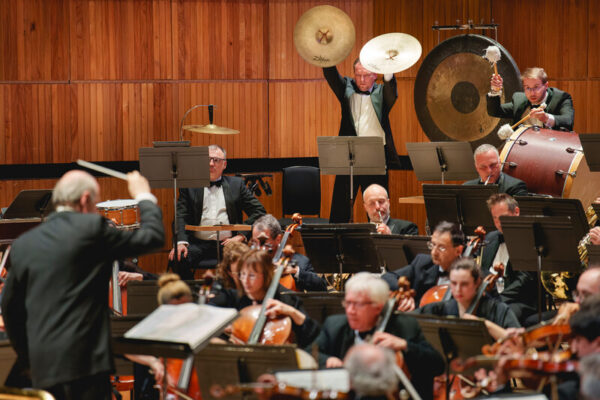 United Kingdom Mahler: Budapest Festival Orchestra / Iván Fischer (conductor), Royal Festival Hall, London, 17.5.2023. (CSa)
United Kingdom Mahler: Budapest Festival Orchestra / Iván Fischer (conductor), Royal Festival Hall, London, 17.5.2023. (CSa)

Mahler – Symphony No.9
No one doubts that art imitates life. Although Mahler’s music was an intensely personal, often almost autobiographical means of expression, it also held a mirror to the world and times in which he lived. His Ninth Symphony, written between 1908 and 1909, certainly reflects the catalogue of private tragedies which had befallen him in the last few years of his life, not least the death of his cherished four-year-old daughter Maria, the break-up of his marriage to Alma, his forced resignation from the Vienna Court Opera in response to venomous antisemitism in the press, and his terminal ill-health. Yet this mighty symphony also taps into the terrible anxiety prevalent in Europe in the years immediately before the First World War and recognises consciously or not the shifting tectonic plates underpinning the old order, and the turmoil and terror about to be unleased on the world. The Hapsburg Empire and, to adopt Viennese writer Stefan Zweig’s phrase, ‘The Golden Age of Security’ were soon to be swept away. As musicologist and conductor Benjamin Zander has pointed out, ‘In 1909, when the Ninth Symphony was composed, Mahler stood at the very dividing line between these two worlds: he was the culmination of the past and the harbinger of the future … This work embodies this fundamental struggle between the two ages and depicts one man’s struggle between hope and despair, meaning and chaos, joy and resignation in the face of his own death.’ Who better than the forces of the 97-strong Budapest Festival Orchestra, under Iván Fischer, a venerable interpreter of Mahler’s work, to recount this tragic elegy to love, life, loss, and death?

Fischer is a conductor of elegance and economy. There were no meretricious gestures, or podium histrionics. His performance was entirely dedicated to the music and his players. Yet his control was absolute. The pinpoint precision beat of his baton, and the expressive gesturing of his left hand ensured perfect structural balance, meticulous instrumental detail, compelling dynamics and perfect pacing. He elicited from the orchestra a rich, generous, and authentically old-world sound reminiscent of great recordings by past luminaries such as Bruno Walter and Otto Klemperer.
Alban Berg described the opening Andante comodo as being ‘permeated with the premonition of death … where in the midst of the highest power of almost painful joy in life, death is announced with greatest force’. From the first fragmented and mysterious moments, Fischer contrasted, but never exaggerated, the movement’s inherent tensions to great effect. The conflict between the lyrical and harmonious themes of late nineteenth century Romanticism, with dark passages of complexity and often atonal dissonance of early twentieth century music, were developed to the full. These were highlighted by some outstanding instrumental solos in which snarling brass brayed derisively at sweetly tuneful passages from woodwind and strings.
The two central movements were distinguished by some dazzlingly virtuoso performances. Fischer painted the canvas of the symphony’s second movement Scherzo with bold strokes of Mahlerian colour. A grotesque caricature of a traditional rustic Ländler became a dark and joyless dance, and elicited brilliant playing from biting trumpets, shrill flutes, oboes, and clarinets, interpolated by deliciously pungent bassoons. The third movement, a dramatic Rondo-Burleske, featured dramatic contrapuntal volleys between the sections. They could have become wild and unruly, but the instrumental crossfire was unerringly accurate, and in Fischer’s skilful hands, beautifully contained.
In the final Adagio, Fischer faithfully observed Mahler’s specific direction ohne Ausdruck (without expression). Nonetheless, the textures of the playing were particularly rich, hinting that the last movement might conclude on a note of crowning majesty. Instead of course, in final moments of heartrending intensity as Mahler bade the world adieu, the voice of this vast orchestra faded to an almost imperceptible whisper – death by pianissimo – followed by a tragic but tranquil silence.
Chris Sallon
